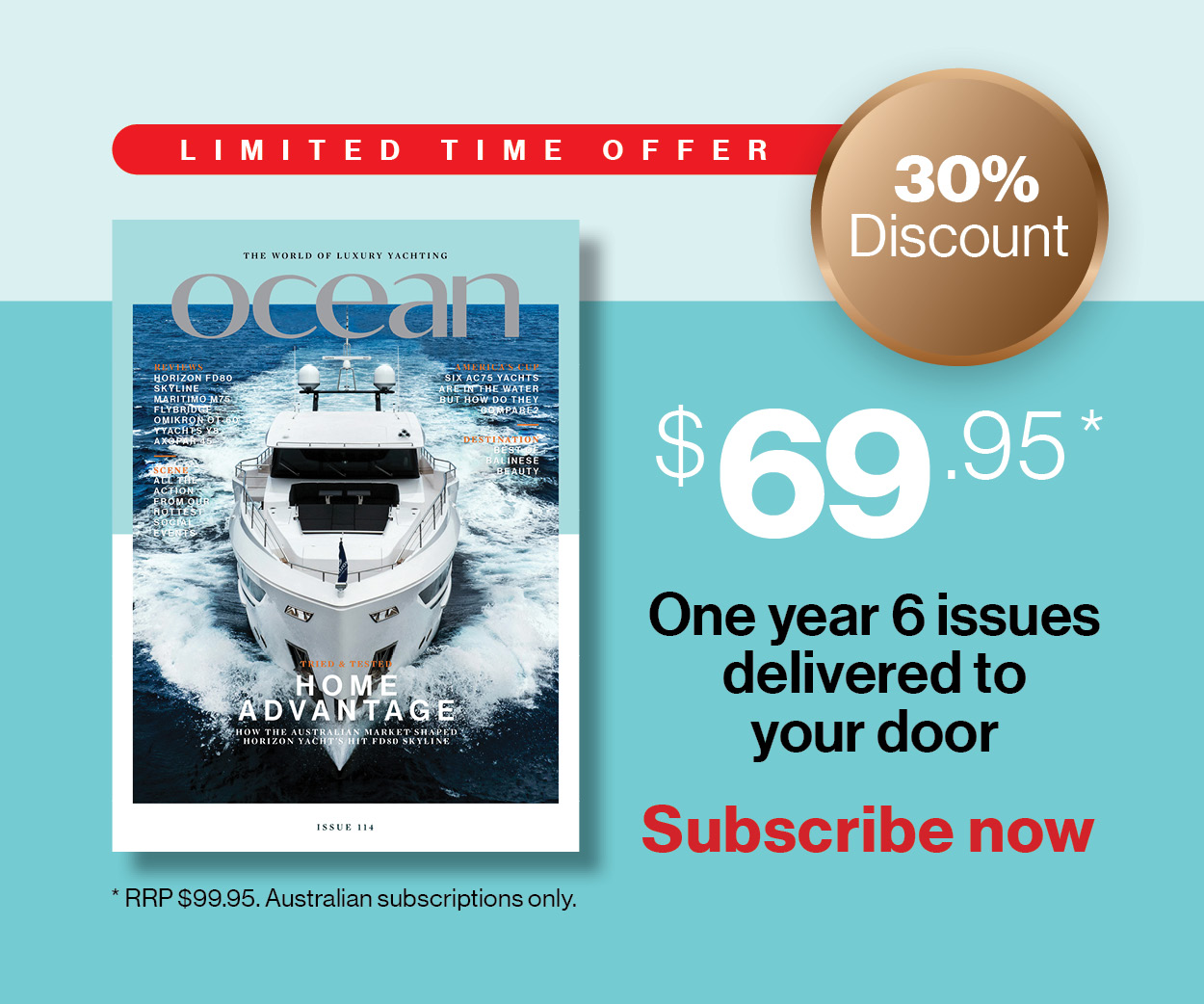Ocean keeper
Ocean talks to environmentalist Tim Silverwood about a topic close to his heart – and what we can all do to affect change.
Written by Jack O'Rourke
08 June 2018
Eco advocate, ocean guardian and sustainability champion, Tim Silverwood has established a number of projects that protect the environment. Passionate about combatting global plastic pollution, he created Take 3, a community-focussed clean-up initiative that is making a difference to our oceans – three pieces at a time.
What inspired you to get involved in ocean conservation?
I always wanted to be involved in this space. I studied conservation at university, but when I was travelling around the world surfing, I saw the problem firsthand. I’m passionate about preventing pollution; it’s a big issue I want to do something about.
In 2009 I was introduced to surfing enthusiast Amanda Marechal and marine ecologist Roberta Dixon-Valk, and together we co-founded Take 3, an Australian not-for-profit organisation that is committed to reducing plastic pollution. Our message is simple: take three pieces of rubbish with you when you leave the beach, waterways – anywhere!
We recognised early on that it was about pairing education with physical action. Education is great, but things will only change through action. That’s why we started supporting initiatives that reduce the use of plastic, and getting schools, surf clubs and other organisations on board.
In 2011, on a research expedition led by Charles J Moore’s Algalita Marine Research Foundation, I sailed 5,000 kilometres across the North Pacific Ocean to study the infamous Great Pacific Garbage Patch. I came away from that trip thinking, You’re in this now, Tim!
Take 3 is a globally recognised movement now. What initiatives are you involved in that will further grow the awareness of this project?
Take 3 has 130,000 followers online, and the hashtag #Take3forthesea has been used over 53,000 times on Instagram and Facebook. More importantly, it has been used in 129 countries. This is incredibly exciting because if we’re going to solve the problem, we need people to participate everywhere.
Last year, in a pilot project on Facebook, we found that people posting about #Take3forthesea were taking on average 15 pieces of rubbish away with them. The project also allowed us to gain insights into the average time people are spending cleaning up their area, and where clean-ups are occurring.
If our audience are doing what the data shows, people are taking away 2.5 million pieces of rubbish a year. It also proves that there is an increased awareness, and hopefully this will engender support for new initiatives.
Recently, Take 3 co-founders Amanda Marechal and Roberta Dixon-Valk appeared on the environmental world stage at the 6th International Marine Debris Conference in San Diego. The event focussed on coming together as a collective to help reduce the amount of plastic in our oceans.
Over 360 million tonnes of plastic has been produced to date, which is finding its way into our oceans, and there has been new science released around microplastics – a type of plastic that breaks up into small pieces, but never biodegrades. It has been found in a huge array of sources including clothes, micro-beads, and products from industrial and commercial manufacturing.
The scary part is that it has also been found in our food chain – in bottled water, table salt and beer – so it is in our bodies, too. This is concerning because we don’t know the long-term effects of these microplastics.
What other projects are you involved in?
I am supporting legislative reforms through various organisations, including the campaign to ban plastic bags and the 10c refund project for bottles. I am also a believer in the circular economy, which I have introduced to companies that are trying to reform their environmental procedures.
We are fed this notion that our recyclables go to some magic facility where they are transformed into something new. In reality, recycling is fraught with challenges, and usually relies on materials being transported around the world before being mostly down-cycled into inferior products.
The circular economy aims to keep this material in a closed loop. There are two sides to the circular economy. The biological cycle, which includes composting organic material to grow more food. Then there’s the technological cycle. For example, a mobile should be deconstructed down to all its parts and everything reused to make a new phone. The idea is to completely do away with waste.
My other main focus is Rechusable, which I founded in 2012 with my mum Giselle. I found the simplest way to reduce plastic waste is to not use plastic products in the first place. Choose to re-use; that’s the motto of Rechusable. The goal is to make using reusable products a way of life by refusing disposable plastics.
What can the boating industry do to help the environment?
It’s about education and awareness; there’s information out there for the boating industry. They can make a difference by considering their reliance on single-use plastic products, their sourcing of seafood, and integrating sustainability into their business models.
The industry relies on a healthy ocean, so it’s encouraging to see the Volvo Ocean Race and others embedding ocean conservation practices into their ethos. The superyacht industry can also play a part by making sure that Australia’s cruising grounds are kept pristine through active clean-up campaigns and effective waste management.
The industry needs to consider its legacy; and give back to the environment that it so heavily relies on.
What can readers who want to take action do?
We have some really important work to do to help our oceans, so get involved!
Education is key to reducing waste pollution, so we encourage you to follow and support the Take 3 organisation, and share your photos so we can inspire others.
Remember, take three pieces of rubbish when you leave the beach, waterway – anywhere! – and you’ve made a difference. #take3forthesea







